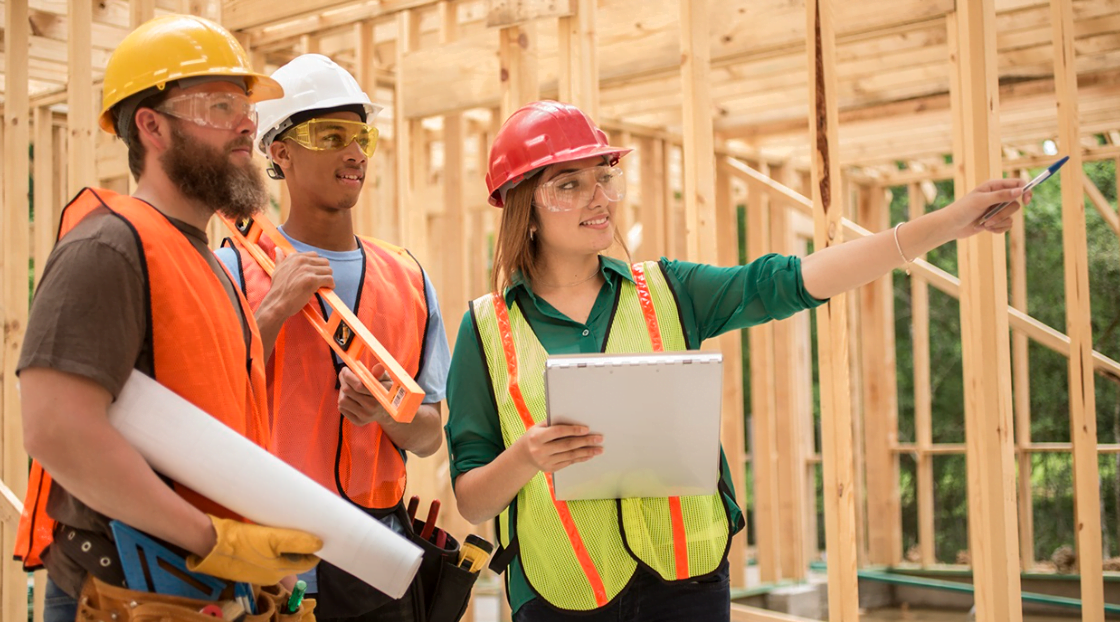Homebuilding is the process of constructing a house from the ground up. It is a complex and challenging process, but it can also be very rewarding. If you are interested in a career in homebuilding, there are a few things you should know.
The Pros of Homebuilding
Homebuilding, also known as residential construction, offers several advantages for those looking to create their dream home. Here are some of the pros of homebuilding:
Customization: One of the biggest benefits of homebuilding is the ability to customize every aspect of your home. From the layout and design to the materials and finishes, you have the freedom to create a space that reflects your personal style and preferences.
Quality Control: When you build a home, you have greater control over the quality of materials and construction. You can choose reputable builders and ensure that your home is built to meet your desired standards of craftsmanship and durability.
Energy Efficiency: Building a new home allows you to incorporate energy-efficient features and technologies from the beginning. This can include insulation, high-efficiency appliances, smart home systems, and renewable energy sources, which can lead to long-term cost savings and reduce your environmental footprint.
Modern Amenities: New homes often come with modern amenities and features that may not be available in older properties. This can include open floor plans, spacious kitchens, updated bathrooms, ample storage space, and the integration of smart home technology.
The Cons of Homebuilding
While there are numerous advantages to homebuilding, it is essential to consider the potential drawbacks as well. Here are some cons to keep in mind:
Time and Complexity: Building a home is a time-consuming process that requires careful planning, coordination, and decision-making. From obtaining permits to managing construction timelines and dealing with unexpected delays, homebuilding can be a complex undertaking that requires patience and organization.
Cost: Building a custom home can be more expensive than purchasing an existing property. Costs can quickly add up, including land acquisition, design fees, construction materials, labor costs, and unforeseen expenses. It is crucial to establish a realistic budget and ensure you have the necessary financial resources to complete the project.
Uncertainties: Homebuilding involves various uncertainties and risks. From changes in the housing market to fluctuations in construction costs, there are external factors that can impact the project’s timeline and budget. It is essential to be prepared for potential challenges and have contingency plans in place.
Limited Location Options: When building a home, you are limited to the available land in desired locations. Finding suitable land that meets your criteria in terms of proximity to amenities, schools, and work can be challenging, especially in highly desirable areas.
Ultimately, the decision to embark on a homebuilding project depends on your personal preferences, budget, and willingness to invest time and effort into creating a customized living space. Considering the pros and cons can help you make an informed choice that aligns with your goals and lifestyle.
is homebuilding a good career path
Choosing a career path is a significant decision, and one industry that often comes to mind is homebuilding. The construction and homebuilding sector offers a wide range of opportunities, but is it a good career path? In this essay, we will explore the world of homebuilding and discuss the merits of pursuing a career in this industry.
Stability and Job Security The homebuilding industry provides a sense of stability and job security. As long as people need homes, there will be a demand for skilled professionals in the construction and homebuilding field. The continuous need for new homes, renovations, and repairs ensures a steady stream of job opportunities.
Diverse Range of Roles Homebuilding encompasses a diverse range of roles, allowing individuals to find their niche based on their skills and interests. From architects and engineers to project managers, carpenters, electricians, plumbers, and more, there are numerous career paths to choose from within the homebuilding industry. This diversity enables individuals to explore various areas and find a role that aligns with their passion and expertise.
Hands-On and Tangible Work For individuals who enjoy hands-on work and seeing tangible results, homebuilding offers a fulfilling career path. Constructing homes involves physically building and creating structures from the ground up. The ability to witness the transformation of raw materials into a finished home can be immensely rewarding.
Opportunities for Advancement The homebuilding industry provides ample opportunities for career advancement. Starting from an entry-level position, individuals can gain experience, develop skills, and progress to higher-level roles with greater responsibilities and increased compensation. With dedication and continuous learning, one can climb the career ladder and even move into leadership positions within the industry.
Contributing to Communities Homebuilding plays a crucial role in shaping communities and providing people with a place to live and thrive. By working in the homebuilding industry, individuals have the opportunity to contribute to the development and improvement of neighborhoods, making a positive impact on the lives of homeowners and the community at large.
Economic Stability and Growth The homebuilding industry is closely tied to the overall economy. During periods of economic growth, there is typically an increased demand for housing, resulting in more opportunities for homebuilders. Additionally, homebuilding contributes to job creation, economic development, and stimulates other sectors of the economy, further enhancing its stability and growth potential.
Conclusion Choosing a career path in homebuilding can offer a range of advantages. With stability, job security, diverse roles, hands-on work, opportunities for advancement, the ability to contribute to communities, and the industry’s connection to economic stability and growth, it becomes clear that homebuilding is indeed a promising career path. However, individuals should also consider their personal interests, skills, and long-term goals when making career decisions. By evaluating these factors, one can determine if a career in homebuilding aligns with their aspirations and leads to a fulfilling and prosperous professional journey.

